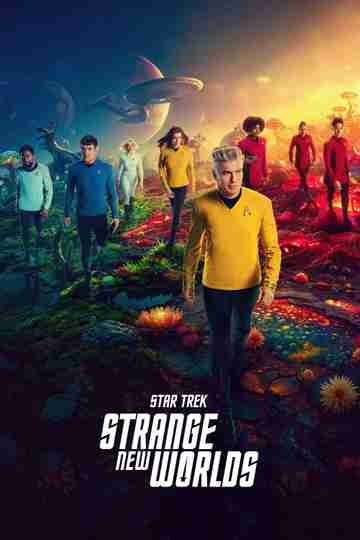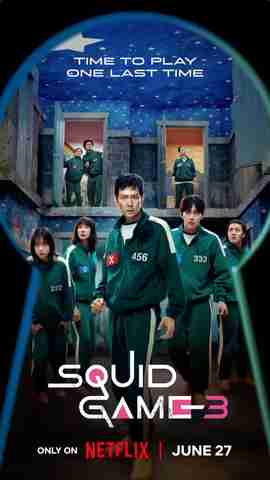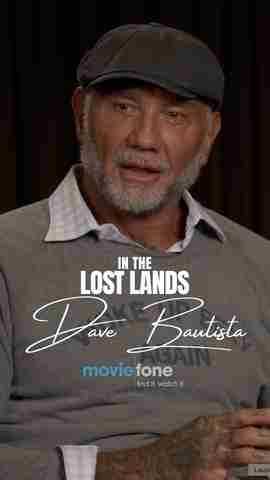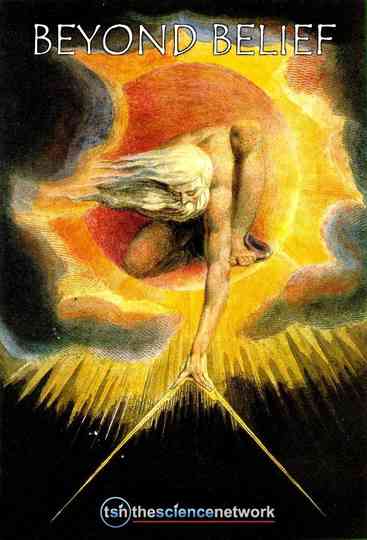Season 2008 Episodes
1. Roger Bingham
Roger Bingham is Co-founder and Director of The Science Network. He is also a member of the Computational Neurobiology Laboratory at the Salk Institute of Biological Studies and the Institute for Neural Computation at UC San Diego. He is the co-author of The Origin of Minds: Evolution, Uniqueness, and the New Science of the Self, and the creator and host of Emmy award-winning PBS science programs on evolutionary psychology and cognitive neuroscience, including the critically acclaimed series The Human Quest.
2. Anthony Grayling
Anthony Grayling is Professor of Philosophy at Birbeck College, University of London, and a Supernumerary Fellow of St Anne's College, Oxford. He has written and edited many books on philosophy and other subjects; among his most recent are a biography of William Hazlitt and a collection of essays. For several years he wrote the "Last Word" column for the Guardian and is a regular reviewer for the Times Literary Review and the Financial Times.
3. Sonja Lyubormirsky
Sonja Lyubomirsky is Professor of Psychology at the University of California, Riverside. Her honors include a Faculty of the Year Award, Faculty Mentor of the Year Award, a Templeton Positive Psychology Prize, and a million-dollar grant from NIMH to conduct research on the possibility of permanently increasing happiness. Her book, The How of Happiness, was released in January 2008 by Penguin Press and translated into 15 languages.
4. Owen Flanagan
Owen Flanagan is James B. Duke Professor of Philosophy at Duke University. He also holds appointments in Psychology and Neurobiology and is a Faculty Fellow in Cognitive Neuroscience. In 1998, he was recipient of the Romanell National Phi Beta Kappa award, given annually to one American philosopher for distinguished contributions to philosophy and the public understanding of philosophy. He has written several books; the most recent is The Really Hard Problem: Meaning in a Material World.
5. Guven Guzeldere
Güven Güzeldere is Associate Professor of Psychological and Brain Sciences and of Neurobiology at Duke University. He has published articles on philosophy of mind, history and philosophy of psychology, and artificial intelligence. He is a founder of Stanford Electronic Humanities Review, a founding associate editor of Psyche: An Interdisciplinary Journal of Research on Consciousness, and a founding member of the Association for the Scientific Study of Consciousness.
6. George Koob
George F. Koob is a Professor and Chair of the Committee on the Neurobiology of Addictive Disorders at The Scripps Research Institute and Adjunct Professor in the Departments of Psychology and Psychiatry, and Adjunct Professor in the Skaggs School of Pharmacy and Pharmaceutical Sciences at UC San Diego. Dr. Koob's research interests are directed at the neurobiology of drug addiction, with a focus on the theoretical constructs of reward and stress.
7. Panel - Human Flourishing
With Sonja Lyubomirsky, Owen Flanagan, Güven Güzeldere, Anthony Grayling, and George Koob Moderated by Roger Bingham
8. Roger Bingham
Roger Bingham is Co-founder and Director of The Science Network. He is also a member of the Computational Neurobiology Laboratory at the Salk Institute of Biological Studies and the Institute for Neural Computation at UC San Diego. He is the co-author of The Origin of Minds: Evolution, Uniqueness, and the New Science of the Self, and the creator and host of Emmy award-winning PBS science programs on evolutionary psychology and cognitive neuroscience, including the critically acclaimed series The Human Quest.
9. Naomi Oreskes
Naomi Oreskes is Provost of Sixth College, Professor of History and Science Studies and Adjunct Professor of Geosciences at UC San Diego and one of the nation's leading experts on the history of the earth and environmental science. Her work came to public attention in 2004 with the publication of "The Scientific Consensus on Climate Change" in Science and was featured in Vice President Gore's film, An Inconvenient Truth. Her forthcoming book is FIGHTING FACTS: How a Handful of Scientists Have Muddied the Waters on Environmental Issues From Tobacco to Global Warming.
10. Chris Mooney & Sheril Kirshenbaum
Sheril Kirshenbaum is co-author of Unscientific America: How Scientific Illiteracy Threatens Our Future with Chris Mooney describing the growing disconnect between science and society. She has worked in the Senate on energy, climate, and ocean policy and helped found ScienceDebate2008. A former pop radio disc jockey and musician, Sheril is now a science writer and Seed blogger based at Duke University. Chris Mooney is a contributing editor to Science Progress, senior correspondent for The American Prospect magazine and author of two books - the New York Times bestselling The Republican War on Science and Storm World: Hurricanes, Politics, and the Battle Over Global Warming. He also writes “The Intersection” blog with Sheril Kirshenbaum.
11. Tony Haymet
Tony Haymet is the tenth director of Scripps Institution of Oceanography at UC San Diego. Haymet also serves as UC San Diego's Vice Chancellor for Marine Sciences and Dean of the Graduate School of Marine Sciences, and is a Professor of Oceanography at Scripps and Chemistry at UC San Diego. Tony is a founder and currently Vice-Chair of CleanTech San Diego, a business development organization dedicated to the practical response to climate change issues.
12. This Is Your Brain on Politics
With Chris Mooney, Sheril Kirshenbaum, and Tony Haymet. Moderated by Roger Bingham
13. Roger Bingham
Roger Bingham is Co-founder and Director of The Science Network. He is also a member of the Computational Neurobiology Laboratory at the Salk Institute of Biological Studies and the Institute for Neural Computation at UC San Diego. He is the co-author of The Origin of Minds: Evolution, Uniqueness, and the New Science of the Self, and the creator and host of Emmy award-winning PBS science programs on evolutionary psychology and cognitive neuroscience, including the critically acclaimed series The Human Quest.
14. Peter Turchin
Peter Turchin is Professor of Ecology and Mathematics at the University of Connecticut. He is the author of more than 100 articles including ten in Nature and Science. He has written five books, the latest of which is War and Peace and War: The Life Cycles of Imperial Nations, Pi Press. Much of his work concerns a new field known as cliodynamics, which attempts to discover general principles that explain the functioning and dynamics of historical societies.
15. Sally Saytel
Sally Satel is a scholar at the American Enterprise Institute, and staff psychiatrist at the Oasis Clinic in Washington, D.C. She has published articles on cultural aspects of medicine and science in The New York Times, New Republic, Commentary, Atlantic Monthly, New York Times Magazine, and Wall Street Journal. Dr. Satel is the author of PC, M.D.: How Political Correctness Is Corrupting Medicine; Drug Treatment: The Case for Coercion; and coauthor of One Nation Under Therapy.
16. V.S. Ramachandran
V.S. Ramachandran is Director of the Center for Brain and Cognition and Professor with the Psychology Department and the Neurosciences Program at UC San Diego. A former BBC Reith Lecturer, he co-authored Phantoms in the Brain: Probing the Mysteries of the Human Mind, with Sandra Blakeslee, and is the author of A Brief Tour of Human Consciousness and a forthcoming book on human uniqueness.
17. Panel - Human Flourishing Continued
With Peter Turchin, Sally Satel, and V.S. Ramachandran. Moderated by Roger Bingham
18. Roger Bingham
Roger Bingham is Co-founder and Director of The Science Network. He is also a member of the Computational Neurobiology Laboratory at the Salk Institute of Biological Studies and the Institute for Neural Computation at UC San Diego. He is the co-author of The Origin of Minds: Evolution, Uniqueness, and the New Science of the Self, and the creator and host of Emmy award-winning PBS science programs on evolutionary psychology and cognitive neuroscience, including the critically acclaimed series The Human Quest.
19. Jonathan Haidt
Jonathan Haidt is an Associate Professor of Psychology at the University of Virginia. He studies the emotional and intuitive foundations of morality. His current work is based on the idea that morality is a team sport and that political liberals don't understand the game the other side is playing. He is the author of The Happiness Hypothesis and is currently writing The Righteous Mind: Why Good People are Divided by Politics and Religion.
20. Sam Harris: Can We Ever Be Right About Right and Wrong?
Sam Harris is the author of The New York Times bestsellers, The End of Faith: Religion, Terror and the Future of Reason which won the 2005 PEN/Martha Albrand Award for First Nonfiction, and Letter to a Christian Nation. His writing has appeared in Newsweek, Los Angeles Times, The Atlantic, The Times (London), The Boston Globe, The Annals of Neurology, and elsewhere. He is currently researching the neural basis of religious belief while completing a doctorate in neuroscience. He is also a Co-Founder and Chairman of The Reason Project.
21. Jonathan Glover
Jonathan Glover is Professor at the Centre of Medical Law & Ethics at King's College London, as well as a Distinguished Research Fellow at the Oxford Uehiro Centre for Practical Ethics. His books include Humanity: A Moral History of the Twentieth Century, What Sort of People Should There Be? and Causing Death and Saving Lives, the first philosophical study of the then futuristic issues of genetic engineering and of neuroethics. He is currently interested in a number of issues in global ethics and ethical issues in psychiatry.
22. Marco Iacoboni
Marco Iacoboni is Professor of Psychiatry and Biobehavioral Sciences and Director of the Transcranial Magnetic Stimulation Lab at the Ahmanson-Lovelace Brain Mapping Center. He is also a member of the Brain Research Institute and of the UCLA Center for Culture, Brain, and Development. Iacoboni studies the neural mechanisms of imitation and social cognition in humans, and he is author of the recent book on mirror neurons entitled Mirroring People: The New Science of How We Connect with Others.
23. Patricia Churchland
Patricia Smith Churchland, UC President's Professor of Philosophy, UC San Diego, focuses on neuroethics and attempts to understand choice, responsibility and the basis of moral norms in terms of brain function, evolution and brain-culture interactions. Her books include Brain-Wise, Neurophilosophy: Towrds a Unified Science of the Mind-Brain and On the Contrary, with Paul M. Churchland.
24. This Is Your Brain on Morality
With Jonathan Haidt, Sam Harris, Jonathan Glover, Marco Iacoboni, and Patricia Churchland. Moderated by Roger Bingham
25. Roger Bingham
Roger Bingham is Co-founder and Director of The Science Network. He is also a member of the Computational Neurobiology Laboratory at the Salk Institute of Biological Studies and the Institute for Neural Computation at UC San Diego. He is the co-author of The Origin of Minds: Evolution, Uniqueness, and the New Science of the Self, and the creator and host of Emmy award-winning PBS science programs on evolutionary psychology and cognitive neuroscience, including the critically acclaimed series The Human Quest.
26. Brian Knutson
Brian Knutson is Associate Professor of Psychology and Neuroscience at Stanford University. His laboratory uses multiple methods (e.g., psychometrics, psychophysiology, brain imaging, and pharmacology) to investigate neural mechanisms that support emotional experience, and explores implications for clinical disorders of affect and addiction, as well as for economic decision-making. He has received Young Investigator Awards from the American Psychiatric Association, the National Alliance for Research on Schizophrenia and Depression, and the Academy of Behavioral Medicine Research.
27. Paul Zak
Paul J. Zak is the founding Director of the Center for Neuroeconomics Studies and Professor of Economics at Claremont Graduate University. Zak also serves as Professor of Neurology at Loma Linda University Medical Center, and is a Senior Researcher at UCLA. Zak is credited with the first published use of the term “neuroeconomics” and has been a vanguard in this new discipline. He organized and administers the first doctoral program in neuroeconomics in the world.
28. Terry Sejnowski
Terrence Sejnowski is an HHMI investigator, the Francis Crick Professor and Director of the Crick-Jacobs Center for Theoretical and Computational Biology at the Salk Institute. He is author of several books including The Computational Brain and Liars, Lovers, and Heroes: What the New Brain Science Reveals About How We Become Who We Are.
29. Philip Zimbardo
Philip Zimbardo is Professor Emeritus at Stanford University and is internationally recognized as a leading "voice and face of contemporary psychology" through his widely seen PBS-TV series, Discovering Psychology, his media appearances, best-selling trade books on shyness, and his classic research, The Stanford Prison Experiment. He is the author of over 300 professional publications and 50 books including the oldest current textbook in psychology, Psychology and Life, and The Lucifer Effect: Understanding How Good People Turn Evil.
30. This Is Your Brain on Money
With Brian Knutson, Paul Zak, Terry Sejnowski, and Philip Zimbardo. Moderated by Roger Bingham
31. Walter Sinnott-Armstrong
Walter Sinnott-Armstrong is Professor of Philosophy and the Hardy Professor of Legal Studies at Dartmouth College, as well as the Co-director of the MacArthur Law and Neuroscience Project. His research interests include ethics, philosophy of law, epistemology, and informal logic. Currently he is working on moral psychology and brain science, and the uses and implications of neuroscience for legal systems. He has recently edited three volumes on the evolution, cognitive science and neuroscience of morality.
32. Amanda Pustilnik
Amanda Pustilnik conducts research and teaches in the area of law and neuroscience at Harvard Law School. She is a graduate of Yale Law School, practiced litigation at Sullivan & Cromwell and Covington & Burling, and has served as a visiting scholar at Emmanuel College, Cambridge, in History of Science. She is also counsel to the Board of Network 20/20, a foreign policy not-for-profit organization.
33. Nita Farahany
Nita Farahany researches and writes about the intersection of criminal law, genetics, neuroscience and philosophy. She does so with an interdisciplinary background in Genetics from Dartmouth College, a master's degree concentrating in biology, from Harvard University, and a J.D., M.A. and Ph.D. in philosophy of biology and philosophy of law from Duke University. She is the editor of forthcoming volume Genes and Justice: The Impact of Behavioral Genetics and Neuroscience on Criminal Law.
34. Adam Kolber
Adam Kolber is a law professor at the University of San Diego who recently completed a Laurance S. Rockefeller Visiting Fellowship at Princeton University's Center for Human Values. He writes about legal and ethical implications of emerging neurotechnologies. Most recently, he has written about methods of measuring pain and punishment. He runs the "Neuroethics & Law Blog" and is an associate editor of the journal Neuroethics.
35. Erin O'Hara
Erin O'Hara is Professor of Law, Associate Dean for Academic Affairs, and Director of the Law and Human Behavior Program at Vanderbilt University Law School. One of Erin’s primary research interests involves conciliation: the effort to integrate theoretical and empirical insights from multiple academic fields, including economics, positive political theory, cognitive psychology, behavioral biology, and neuroscience, to more effectively formulate legal policies that regulate human behavior.
36. This Is Your Brain on Law
With Walter Sinnott-Armstrong, Erin O'Hara, Amanda Pustilnik, Adam Kolber, and Nita Farahany. Moderated by Roger Bingham
37. Lawrence Krauss
Lawrence M. Krauss is Foundation Professor in the School of Earth and Space Exploration and the Physics Department, Co-Director of the Cosmology Initiative and Inaugural Director of the Origins Initiative at Arizona State University. He is an internationally known theoretical physicist with wide research interests, including the interface between elementary particle physics and cosmology, where his studies include the early universe, the nature of dark matter, general relativity and neutrino astrophysics.
38. Beatrice Golomb
Beatrice Golomb is Associate Professor of Medicine at UC San Diego, best known for her work on Gulf War Illness (she has testified before Congress, her RAND reports have changed US policy, and she served as Scientific Director and Chief Scientist for the Department of Veterans Affairs Research Advisory Committee on Gulf War Veterans Illnesses). She also heads the UC San Diego Statin Study group. Her work has engendered broad media interest, from The New York Times to Jon Stewart's The Daily Show.
39. Sir Harold Kroto
Sir Harold Kroto is Francis Eppes Professor in the Department of Chemistry and Biochemistry at Florida State University. In 1996, he was awarded the Nobel Prize in Chemistry for the discovery of C60 Buckminsterfullerene. In 1995, he inaugurated the Vega Science Trust, and in 2007, he started the Global Education Outreach in Science, Engineering and Technology (GEOSET) at FSU. He has received many scientific awards including the Royal Society's prestigious Michael Faraday Award. He was elected to the National Academy of Sciences in 2007.
40. Chris Mooney and Sheril Kirshenbaum
Sheril Kirshenbaum is co-author of Unscientific America: How Scientific Illiteracy Threatens Our Future with Chris Mooney describing the growing disconnect between science and society. She has worked in the Senate on energy, climate, and ocean policy and helped found ScienceDebate2008. A former pop radio disc jockey and musician, Sheril is now a science writer and Seed blogger based at Duke University. Chris Mooney is a contributing editor to Science Progress, senior correspondent for The American Prospect magazine and author of two books - The New York Times bestselling The Republican War on Science and Storm World: Hurricanes, Politics, and the Battle Over Global Warming. He also writes “The Intersection” blog with Sheril Kirshenbaum.
41. Leon Lederman
Leon Lederman is Director Emeritus of Fermi National Accelerator Laboratory (Fermilab) in Batavia, Illinois and Professor of Science at Illinois Institute of Technology in Chicago. He founded the Illinois Mathematics and Science Academy in Aurora, Illinois in 1986, and has served in the capacity of Resident Scholar since 1998. He has also served as President and Chairman of the American Association for the Advancement of Science, is a member of the National Academy of Sciences, and has received numerous awards including the Nobel Prize in Physics (1988).
42. Michael Shermer
Michael Shermer is the Founding Publisher of Skeptic magazine, a monthly columnist for Scientific American, the host of the Skeptics Distinguished Science Lecture Series at Caltech and Adjunct Professor of Economics at Claremont Graduate University. His most recent book on evolutionary economics is The Mind of the Market. He is also the author of Why Darwin Matters: Evolution and the Case Against Intelligent Design and How We Believe: Science, Skepticism, and the Search for God.
43. This Is Your Brain on Politics Continued
With Lawrence Krauss, Leon Lederman, Chris Mooney, Sheril Kirshenbaum, Michael Shermer, Beatrice Golomb, and Harold Kroto. Moderated by Roger Bingham
44. Peter Atkins
Peter Atkins was Professor of Chemistry at the University of Oxford from 1965 until his retirement in 2007. He is the author of over 60 books including Four Laws That Drive the Universe; Galileo's Fingers: The Ten Great Ideas of Science; and the world-renowned textbook Physical Chemistry. He is involved in a variety of international activities including chairing the Committee on Chemistry Education of the International Union of Pure and Applied Chemistry and organizing the Malta series of conferences.



































